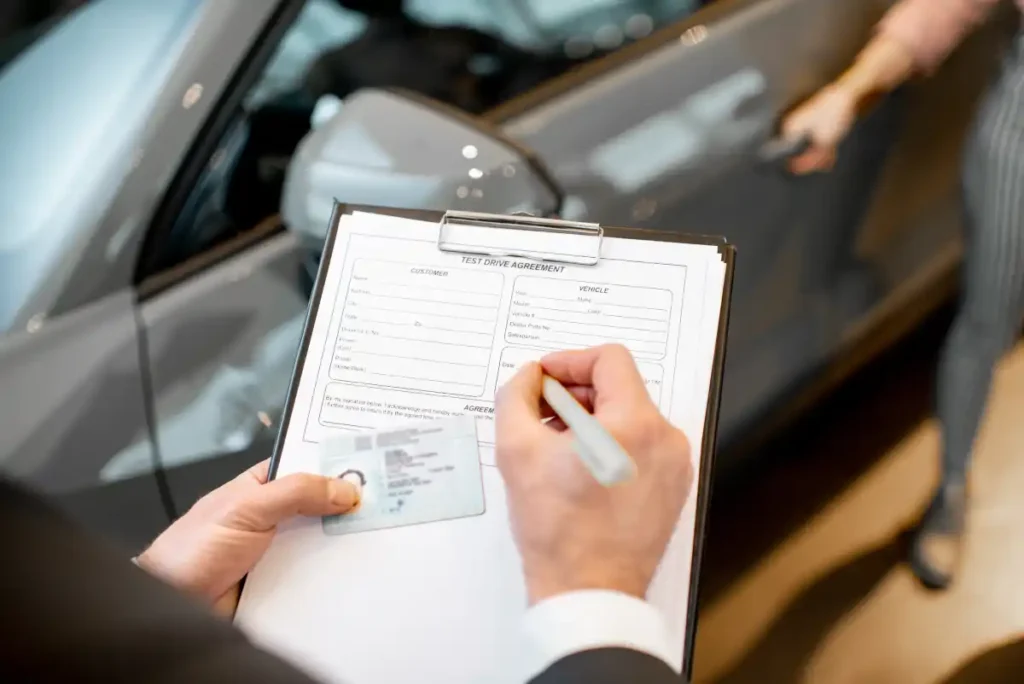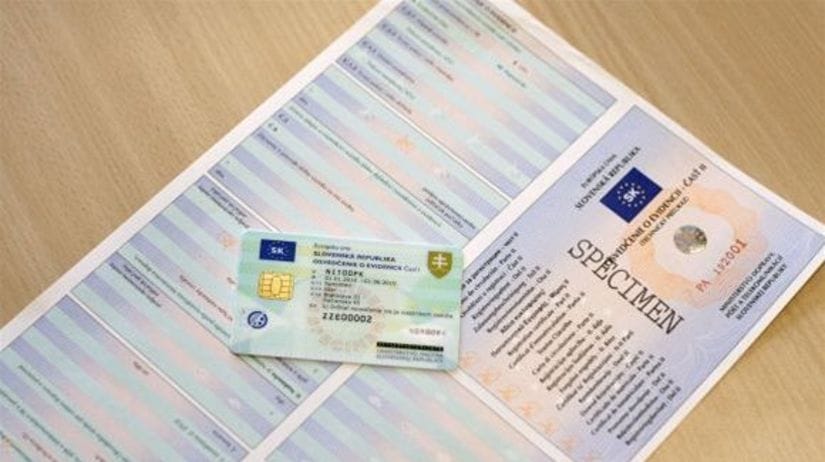
Importing cars from abroad is becoming an increasingly popular way to get a quality vehicle at a bargain price. Given the wide range of offers and price differences, comparing prices is an important step for any potential buyer. Various factors such as document translation fees, technical inspections or registration fees can significantly affect the final price.
When deciding whether to import a car, it is essential to take into account the cost of transport, which may include fuel, flights or accommodation. In this article, we'll look at the key factors that affect the cost of importing a car and provide useful tips on how to save money when choosing a car from abroad.
Comparison of Prices for Importing Cars from Abroad
Comparing the prices of imported cars from abroad requires taking into account various factors that affect the final cost. Document transfer fees, technical inspections and registration fees can account for a significant part of the total expenditure. It is estimated that fees for official translation of documents range from EUR 50 to EUR 150, depending on the number of pages and the complexity of the text.
The roadworthiness and emissions test, which is compulsory when registering a car, costs around €50 to €100. Registering a car involves a fee of €33, with fees varying depending on the type of car and the country of origin.
The cost of transporting a car from abroad ranges from EUR 500 if the services of professional providers are used. If the driver chooses to transport with his own trailer, fuel expenses, motorway stamps and possible accommodation costs should be added. These costs can amount to an additional EUR 200 to EUR 400, depending on the distance and the mode of transport.
An important part of price comparison is also the transparency of the sellers. Prices advertised by retailers often do not include all additional costs, which can affect the overall value of the purchase. Dealers may advertise cars with insufficient information or hidden charges, leading to inaccuracies in the final prices.
When choosing a car from abroad, you also need to take into account the language barrier. When communicating with the dealer, you may need an interpreter, which is an additional cost. The services of an interpreter are estimated to cost between EUR 20 and EUR 50 per hour.
A well-planned price comparison of car imports from abroad helps to get a car at a better price. Making a detailed review of the costs before making a final decision is considered crucial. Various factors such as fees, shipping time and exchange rates affect the purchase.
Importing Cars From Abroad - Fees
When importing a car from abroad, it is important to take into account the various fees that affect the final price of the vehicle. These costs can have a significant impact on the overall investment in the car.
Payment of VAT on Car Import
When importing a car from abroad, the question of VAT payment arises. If the car is not new, i.e. if it has covered more than 6 000 km or if it was delivered to the owner more than six months after it was first registered, VAT does not have to be paid on the car. In the case of a new car, i.e. a car with less than 6 000 km on the clock or delivered within six months of first registration, VAT is payable in the country where the car is registered. In Slovakia, VAT is calculated on the total price of the vehicle, including transport costs and additional charges. For vehicles where VAT has been paid in the country of purchase and in the country of registration, it is possible to claim a VAT refund. The seller must prove that the vehicle was actually transported and registered in another country.

Car Registration Fees
Registering your vehicle after import from abroad involves a number of charges. The basic registration fee starts at €33, but the amount depends on the vehicle's performance and ecological coefficient. For more powerful cars, the fees can reach more than €1,000. In addition, fees are payable for the official translation of the vehicle's technical documents and the sales contract, with costs ranging from €50 to €150. It is also necessary to undergo a technical and emission inspection, with costs ranging from 50 to 100 euros. Before registration, it is important to have all the necessary documents ready and to submit them at the traffic inspectorate or electronically. These fees ensure that the vehicle meets all the legal requirements for registration in the country.
Detailed planning of costs and fees can contribute significantly to a positive outcome when importing a car from abroad.
Main Factors Influencing Price
Several factors influence the price of importing cars from abroad. These factors affect the final amount for which the car will be purchased and registered.
Vehicle type - New vs. Used
The type of vehicle is a crucial aspect that influences the price of imports. New vehicles require the payment of VAT, while used vehicles with more than 6 000 km on the clock are exempt from this obligation. The price of a new vehicle is usually higher as its current market condition is also taken into account. Used vehicles may be more affordable, but the cost of operating and maintaining them may be higher if technical repairs and replacement of parts are taken into account. The overall age of the vehicle, its condition and equipment play a significant role in the final price.
Country of Import
The country from which the vehicle was imported can have a positive impact on costs. For example, car prices in Western Europe are often higher than in Eastern Europe. The variation between countries is also reflected in the different fees associated with transport and registration. At the same time, legislative requirements that affect the import process may also differ. If a car is imported from a country where transport and registration costs are lower, the overall price may be more favourable. It is also important to take into account the language barrier, which may generate additional costs for interpretation services or official translations.
Car Shipping To Slovakia
The cost of transporting the vehicle from abroad is another important factor. Prices range from EUR 500 and also take into account the distance and mode of transport. If the car is being transported using professional services, there may be additional charges for handling and insurance. The car journey itself may require a degree of flexibility, as fuel, motorway tolls and possible overnight accommodation may need to be paid for. Well-planned transportation costs are key to the overall economics of importing a car.

Documentation Required on Import
When importing a vehicle from abroad, it is important to have the correct documentation. Correct and complete documents ensure a smoother registration process and avoid future problems.
What Documents Are Required?
To register an imported vehicle, you need a few basic documents. These documents include:
- Purchase and sale agreement - This document must include the names of the seller and buyer, the price of the vehicle and details of the vehicle.
- Original technical licence - The licence must be from the country from which the vehicle was imported.
- Certificate of Conformity (COC) - This certificate confirms that the vehicle meets technical and safety standards.
- Expert opinion on originality check - Contains information about the vehicle's originality check.
- Technical inspection protocol - Required for vehicles older than 4 years.
- Emission control protocol - An important document that confirms compliance with emission standards.
- Proof of acquisition - Original proof of purchase, invoices or other documents proving ownership.
- Identity card - The person applying to register the vehicle must present his or her identity card.
It is necessary to secure all these documents before applying for registration to avoid unnecessary delays.
Originality Check And Technical Inspections
An originality check and a technical inspection are compulsory steps when importing a vehicle. If the vehicle does not pass these checks, registration may not take place.
Originality check is a process that requires a specialised specialist assessment service. During the inspection we measure and experiment with the technical aspects of the vehicle. The price for this service ranges from €90 to €110 and the results are valid for 15 days.
A technical inspection is also required. If the vehicle is more than 4 years old, a roadworthiness and emissions test is required. The cost of the technical inspection ranges from EUR 50 to EUR 100. Both checks can be carried out in one visit, making the registration process easier.
The documents required for the originality check include:
- Original technical licence from the exporting country.
- Purchase and sale agreement or an invoice, including translated documents.
- Certificate of Conformity COC - especially important for new vehicles.
Ensuring these checks and the necessary documents play a key role in the successful import of a vehicle from abroad and its subsequent registration.

Advantages And Disadvantages Of Importing Cars
Importing a car from abroad is an interesting alternative that offers a wide range of advantages and disadvantages. It is important to consider these factors before making a final decision.
Why Import a Car from Abroad?
Importing a car from abroad brings several advantages. The expansion of the offer is one of the main advantages. Foreign markets often offer vehicles in better condition with lower mileage. Often models can be found that are hard to find in the domestic market. Car prices in more advanced, but also in developed European countries are in many cases lower than prices of comparable vehicles in Slovakia.
The same approach can also be used when looking for specific vehicle characteristics. Vehicles with certain features or limited editions are more common abroad, and this contributes to greater satisfaction with the final choice. In addition, vehicles from countries that place a premium on quality care may have a better service history, which affects their long-term reliability.
Risks Caused by Bureaucracy
There are a number of bureaucratic hurdles when importing a car from abroad. The complex process of registering and transferring ownership can involve a number of administrative steps that can be time-consuming. For example, the necessary documents such as inspection certificates and roadworthiness certificates are crucial, but securing them can be complicated.
Language barriers are also an important aspect. Foreign documents in an unfamiliar language require additional translations, which increase costs. Additionally, the adoption of temporary signs and insurance tends to be difficult without the right information. Not being prepared for legislative requirements can lead to potential fines or registration problems.
Well-planned preparation and knowledge of the necessary steps are essential for a successful vehicle import without unnecessary complications. Much of the process can be stressful, so it is recommended to use professional car shipping and registration services to limit potential difficulties.
Summary of Price Options
Comparing the prices of imported cars from abroad shows the diverse options and costs that affect the final price of a vehicle. Document translation costs range from €50 to €150, a technical inspection costs between €50 and €100 and the registration fee is €33. Transport from the country of origin usually starts at EUR 500, with additional costs for fuel and accommodation amounting to a further EUR 200 to 400.
VAT charges play an important role in the price of imports. Exempt from VAT for vehicles with more than 6,000 km on the clock or older than six months. For new vehicles, VAT applies in the territory of registration. Also take into account registration fees, which range from €33 to more than €1 000 depending on the performance of the vehicle.
The documents required for importation include the contract of sale, the technical licence, the certificate of conformity (COC) and the certificate of technical inspection. A technical and originality check are essential and cost between €90 and €110 for the originality check and €50 to €100 for the technical check.
Importing cars offers many advantages, such as more affordable vehicles in better condition and lower prices. However, bureaucratic issues and language barriers can lengthen the registration process and increase costs. Well-planned car import steps contribute to a successful vehicle acquisition without unnecessary complications.
Summary
Importing cars from abroad can be a viable option for those looking for a quality vehicle at an affordable price. It is important to carefully consider all the costs and fees that may affect the final amount. Dealer transparency and proper planning are key to a successful import.
Taking language barriers and administrative requirements into account can make the whole process much easier. In this way, buyers can not only secure a better price, but also a smooth vehicle registration process. With sufficient preparation and knowledge of the necessary steps, importing cars becomes easier and more efficient.